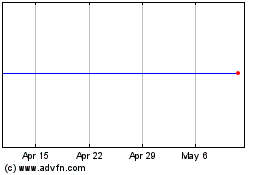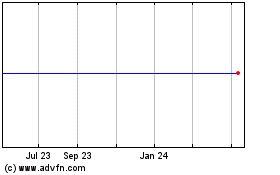United Technologies Keeps Eye on a Breakup
March 16 2018 - 3:16PM
Dow Jones News
By Thomas Gryta
For a company that says it will wait until later this year to
consider breaking up, United Technologies Corp. is already putting
a lot of thought into the idea.
The Connecticut conglomerate on Friday detailed potential
one-time costs of $2 billion to $3 billion for splitting into three
units and said such a process would take 18 to 24 months to
complete. The company previously had said the separate divisions
would probably spend about $200 million a year each to be
independent. The review, with the board of directors, will begin
this summer and produce a decision by year-end.
"Will you really create long-term value for the shareowners by
breaking the company up? That is the fundamental question," said
CEO Greg Hayes at the company's annual analyst meeting in Florida
on Friday. The company, which was formed in 1934, has a market
value of $103 billion,
The idea of a breakup gathered momentum around September when
United Technologies agreed to buy Rockwell Collins for $23 billion.
In separating, Rockwell would merge with UTC's aviation-services
division and Pratt & Whitney engines division to form a large
aviation company, while the Climate, Controls & Security
division and Otis elevators business would both become separate
companies.
The company had planned to evaluate that idea in a couple of
years because it needed the cash flow from the combined companies
to pay down debt from the Rockwell deal, according to people
familiar with the company's plans. The new federal tax law allowed
the company to bring home overseas cash and more-quickly pay down
debt, which meant it could move up the planned review to this
summer when the deal closes.
The evaluation comes as investors are pressuring traditional
conglomerates to justify their existence. General Electric Co. is
evaluating separating its core business units into publicly traded
companies. Honeywell International Inc. went through a similar
process last year, ultimately deciding to spin off two units. While
GE shares have tumbled more than 50% over the past year, shares of
United Technologies have gained 15% and Honeywell have risen about
20%.
United Technologies revenue is about evenly split between
airplanes and buildings.
In the 1970s, the company expanded beyond its aerospace roots by
acquiring Otis Elevator Co., which pioneered the elevator business,
and Carrier Engineering Co., a large manufacturer of heating and
air-conditioning systems. United Technologies got embroiled in
national politics last year after then-presidential candidate
Donald Trump criticized its decision to close a Carrier factory in
Indiana and move production to Mexico.
Its aerospace and jet-engine businesses had about $30.9 billion
in revenue in 2017, while its other businesses brought in about
$30.2 billion. Rockwell Collins had sales of about $6.8 billion in
the fiscal year ending Sept. 17.
Write to Thomas Gryta at thomas.gryta@wsj.com
(END) Dow Jones Newswires
March 16, 2018 16:01 ET (20:01 GMT)
Copyright (c) 2018 Dow Jones & Company, Inc.
United Technologies (NYSE:UTX)
Historical Stock Chart
From Mar 2024 to Apr 2024

United Technologies (NYSE:UTX)
Historical Stock Chart
From Apr 2023 to Apr 2024
